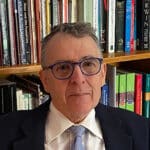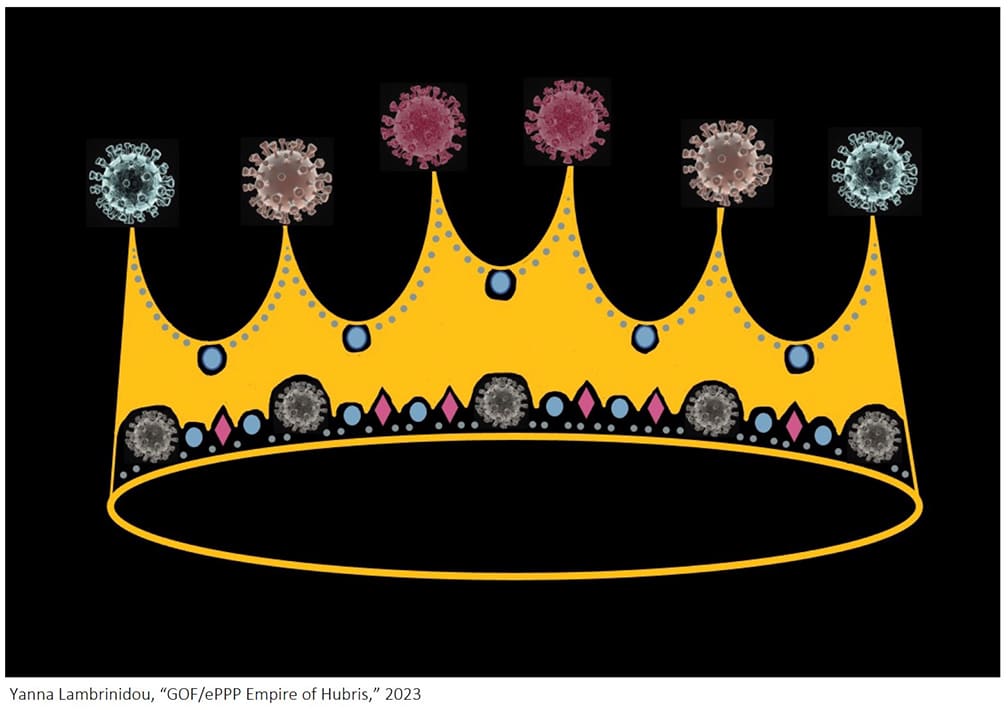Domain expertise and monopoly of knowledge
In the debate about the origin of COVID-19, claims exist that only “domain experts” are qualified to comment; that the opinion of “outsiders” should be devalued, if not disregarded altogether. This is neither a new claim, nor unique to any specific scientific field. However, at the extreme, it merges with cult thinking and is the antithesis of science – that is, it flies in the face of the effort to better understand the nature of things by relying on data which can be observed and measured; which are detectable not only to domain experts but also to other fair-minded observers including, in some cases, members of the public; and which, ideally, can be reproduced.
Long ago, when it stopped being possible for even a genius to be a “Renaissance” wo(man), science (and knowledge more broadly) became “atomised”; (far) beyond the capacity of any individual to follow it all at a micro-level. The resultant reductionism was widely recognised as both brilliant and necessary, but also as insufficient and problematic, at least within most fields of science (1).
We suspect there is considerable understanding of this among geneticists (e.g., the effect of a gene is also influenced by the “milieu” in which the gene functions), but we’re unsure virologists have yet caught on. Indeed, the debate about the origin of COVID-19 cannot be resolved by virologists alone. It necessitates a forensic investigation that combines domain expertise with other specializations, including intelligence and epidemiology.
In any case, the idea that only specialists in one field have a right to comment on that field is absurd and is particularly egregious when these specialists have the capacity to cause large-scale harm. Probably butterfly experts would also benefit from an outsider’s perspective but their work does not seem likely to pose an immediate and direct challenge to our species’ capacity to thrive, in contrast to that of virologists.
Domain expertise and truthfulness
Beyond having an advanced degree in some field, there is an even more fundamental qualification that should be regarded as necessary for a scientist to be credible. This is the capacity to be truthful. As scientists (or social scientists or humanities scholars) we should be concerned with seeking “truth” – or insight into nature – as best we can. Being objective is difficult, but we can try. That requires not only the assessment of scientific evidence in a Popperian sense – the abandonment or refinement of falsified hypotheses. It also requires humility – to view oneself as possessing only partial knowledge at all times, which can be expanded and even corrected by contributions from multiple groups of ‘knowers’: domain experts, non-domain experts, as well as members of the public with relevant experiential, scientific, historical, and other types of knowledge.
If the scientific literature scientists build their theories upon is itself poorly founded then, sooner or later, scientists risk paying a price. Good scientists will abandon, or at least modify falsified theories, in response to new data. However, others may deny that significant flaws exist in their theories, and incorrectly interpret events as confirmation of their untrue takes on “truth.”
If deception (including self-deception, which is probably more important) is on a sufficiently large scale, civilisation itself may pay the price. Detected data falsifiers and plagiarists are usually censured, sometimes even humiliated by academic processes. However, there is an area of thought, impinging on falsification, which is more subtle. This has names such as “groupthink,” “exaggeration” and “grantsmanship.” Here, outside perspectives are periodically vital; otherwise, closed circles of “thought amplifiers” can not only generate false theories but also engage in the repeated misinterpretation of evidence in ways that can appear to support these theories. At worst, pseudoscience is the product.
The philosopher of science, Karl Popper, lucidly discussed this phenomenon in the context of the Marxist theory of history, astrology, and the psychological interpretations of Freud and Adler (2). The same principles can also be used to assess theories endorsed by supporters of gain of function (GOF) experiments involving the enhancement of potentially pandemic pathogens (ePPPs), related in turn to the “Global Virome Project” (GVP) – an initiative to discover viral spillover threats and stop future zoonotic pandemics.
Such supporters have, for several years, claimed that these experiments are necessary to help predict, prepare for, and respond to a pandemic, such as COVID-19. Opponents, however, contend that the emergence of COVID-19 provides contrary evidence to this assertion. Although it may be too early to be confident which view is broadly correct, the agility of some GOF/ePPP supporters to interpret the pandemic as a validation of their research principles and practices (3) should be viewed with concern by the wider scientific community and the public at large. It could illustrate a Popperian trap, a step towards pseudoscience.
While the participation of non-domain experts and members of the public who are not deeply immersed in a topic is clearly necessary to adjudicate, at least on matters likely to be judged as of widespread public interest, a far older principle is also vital to assess the trustworthiness (or otherwise) of a scientist. Here we refer to “character”, a perhaps old-fashioned term. If a spokesperson, including a scientist, is habitually prone to exaggeration or misrepresentation – as assessed by unrelated scientists or the broader public – then the prudent observer should be doubly careful in accepting their conclusions and recommended policies.
Domain expertise and the ability to understand the concept of “conflict of interest”
We suggest that a character trait as desirable as truthfulness is the capacity of scientists to reflect on how others view them, especially in relation to their potential conflicts of interest (COI).
One of the most prominent scientific spokespersons in the debate concerning the origin of COVID-19, GOF/ePPP research, and the GVP is conservation biologist Peter Daszak. Daszak is Treasurer and Secretary of the GVP Leadership Board, member of the National Academy of Medicine, and President of the New-York-based non-profit organization EcoHealth Alliance (EHA). EHA studies emerging infectious diseases and has become well-known via its capacity to raise government research funds from Washington. It serves as a conduit of some of these funds to the Wuhan Institute of Virology, with which it once collaborated – and maybe still does – on risky coronaviral “manipulation”. EHA is now at the centre of a high-stakes global debate concerning the possibility that it helped cause the COVID-19 pandemic.
What do we know of Daszak’s “character”?
The December 10, 2021 testimony of Richard Horton, Editor in Chief of The Lancet, to the Science and Technology Committee of the UK parliament concerning Daszak is informative (4). Horton oversaw the acceptance and publication in The Lancet of the February 18, 2020 letter by Calisher et al (5) – which alphabetically listed Daszak as fifth co-author and stated that “We stand together to strongly condemn conspiracy theories suggesting that COVID-19 does not have a natural origin.” In his testimony almost two years later, Horton admits to becoming aware of a COI involving Daszak soon after Calisher et al was published. However, while this COI was immediately evident to many people (some of whom, Horton implies, very quickly complained to The Lancet), it was explicitly denied, by Daszak, for over 15 months.
Emails obtained via Freedom of Information requests revealed that Daszak not only orchestrated and drafted the Calisher et al letter (which, under ordinary circumstances, would place him first or last – not fifth – in the publication’s author list) but intended this letter to not “have EcoHealth Alliance logo on it” and “to ‘not be identifiable as coming from any one organization or person’ but rather to be seen as ‘simply a letter from leading scientists’. Daszak wrote [to colleagues] that he wanted ‘to avoid the appearance of a political statement’” (6). However, neither Daszak nor four additional co-authors with direct ties to EcoHealth Alliance (Colwell, Field, Hughes, Karesh) declared any COI. Neither, for that matter, did co-author Jeremy Farrar, Director of the London-based health research foundation Wellcome Trust and the World Health Organization’s (WHO) soon-to-be Chief Scientist. Farrar had played what seems like a leading, albeit undisclosed, role in the writing and publication of the controversial February 16, 2020 correspondence, “The proximal origin of SARS-CoV-2,” which similarly stated that, “we do not believe that any type of laboratory-based scenario is plausible” and which was cited in Calisher et al. (7)
In his testimony, Horton outlines a tussle between himself and Daszak that persisted for over a year. For almost all this time, according to Horton, Daszak’s view could be summarised as “Look, I’m an expert in working in China on bat coronaviruses. That isn’t a competing interest, it actually makes me an expert with a view that should be listened to”. In his actual COI statement (over 400 words), finally cajoled by Horton and published almost 16 months after the publication of Calisher et al (7), Daszak fails to spell out that:
(i) EcoHealth Alliance was a conduit of research funds from the US government to the Wuhan Institute of Virology for research that included the experimental insertion of spike proteins into SARS-like coronaviruses (the spike protein of SARS-CoV-2 operates like a key to enter human cells), and
(ii) He, himself, was the Principal Investigator on a (rejected) 2018 grant proposal to the US “Defense Advanced Research Projects Agency” (DARPA), a military funder. This proposal requested funds to insert furin cleavage sites into SARS-like viruses (the furin cleavage site of SARS-CoV-2 is now seen as vital in giving SARS-CoV-2 the capacity to cause the COVID-19 pandemic).
Although Daszak’s belated COI statement still seems to “miss the point”, Horton concedes that some form of a COI statement from Daszak should “definitely” have been included with the original Calisher et al letter.
This is relevant to the argument we made above concerning “groupthink”. We believe it is possible that Daszak’s denial of a lab pathway to explain the origin of COVID-19 – and Horton’s assertion that Daszak’s COI statement, which in our view is grossly incomplete, was “of extremely important relevance” to interpreting the Calisher et al letter – are completely sincere (noting that some will disagree). However, wearing a “Popperian” hat, a scientist’s sincerity (or otherwise) is irrelevant.
The prolonged failure of Daszak to concede the existence of his COI, even though easily perceptible to many others, including Horton, is, in our opinion, evidence of attenuated introspection, a limited capacity for Daszak to expand or correct his understanding of a complex and high-stakes situation with the help of contributions from other ‘knowers’, and a seeming inability to see himself through the eyes of others, especially non-domain experts and members of the public.
In our opinion this should reduce his trustworthiness as well as his standing as a scientific spokesperson for issues related to the origin of COVID-19, GOF/ePPP research and the GVP. Of course, some will strongly disagree with our view. However, in such cases it is important to assess whether they too may have COIs that color their opinion.
Domain expertise and humility
Enthusiasts for any topic (including scientists) frequently “market” their new idea, strategy or technology to make it as attractive as possible. Over-promising increasingly appears to be a principle of successful grantsmanship. We both recall when self-deprecation – more sober judgement – was itself valued. These days a lack of over-promotion of one’s pet theory (including in a grant proposal) may risk invisibility.
When members of the public recognise that a salesperson has a COI, most apply a discount to the promises that are made. We may still buy the washing powder product, but we don’t literally expect “miracle white” towels as a result. Most of us can recognise when our own hopes have been raised by others’ promises, then dashed. As we mature, most of us start to recognise exaggeration, whether by a salesperson or any other form of advocate.
It is the same in science. COI disclosures are fundamental to a healthy circulation of ideas. The non-disclosure of a COI is likely to reduce the discount that would otherwise be applied by the hearer (or reader) to the enthusiast’s claims. This renders the observer vulnerable to the over-embrace of potentially misleading assertions. Thus, it is vital for the audience to know if there is a COI.
In the case of Daszak, not only was a COI not disclosed; but – for over a year – its existence was consciously denied. To our knowledge, three years after the Calisher et al publication, the COIs of Colwell, Field, Hughes, and Karesh (let alone Farrar) have still not been declared. This is worrying because it suggests that EcoHealth Alliance – and maybe the Wellcome Trust as well – may be more akin to cosy clubs with the power to jeopardize public health and the survival of the human species than world-saving enterprises. Perhaps it was at least partly due to this concern that Columbia University Professor of Anesthesiology and of Molecular Pharmacology and Therapeutics Neil L. Harrison drew a parallel between Daszak and the former, now disgraced, biotech entrepreneur Elizabeth Holmes.
Questions about the origin of COVID-19, GOF/ePPP research and the GVP are too important to be left to individuals who systematically deprive the public of information that is necessary for assessing their trustworthiness and the value and safety of their work.
Popper is careful to point out that non-scientific theories can still be valuable. COIs are unavoidable. New theories will keep emerging, and, by their very nature, they will not always be correct. The originators and supporters of such theories will advocate for research, while – almost inevitably – overstating their work’s benefits and understating its risks. These trends do not mean that new theories should not be funded and explored. However, when the champions of these theories exhibit apparent hubris – through claims that they have a monopoly of knowledge; through groupthink, exaggeration, or grantsmanship; and/or through a seeming inability to understand the vital importance of COI disclosure – and when such hubris can result in large-scale harm, should they not be censured, almost akin to data falsifiers and plagiarists?
In Daszak’s case, US taxpayers – who have been paying for much of EcoHealth Alliance’s research and (sometimes troubling) related expenses (8) – as well as the global community that is reeling from the COVID-19 pandemic are entitled to full disclosure about his ties to the Wuhan Institute of Virology and to the GOF/ePPP research that may have produced SARS-CoV-2 and the COVID-19 pandemic. Such research, akin to that of nuclear technology, requires strict regulation and oversight by experts in diverse fields as well as members of the public who end up paying for scientific mistakes with their very lives.
References
(1) Gallagher, R. and Appenzeller, T. (1999) Beyond reductionism. Science, 284, 79.
(4) https://committees.parliament.uk/committee/135/science-and-technology-committee/news/159684/science-and-technology-committee-holds-evidence-session-on-research/ Listen from 11.09 AM.



